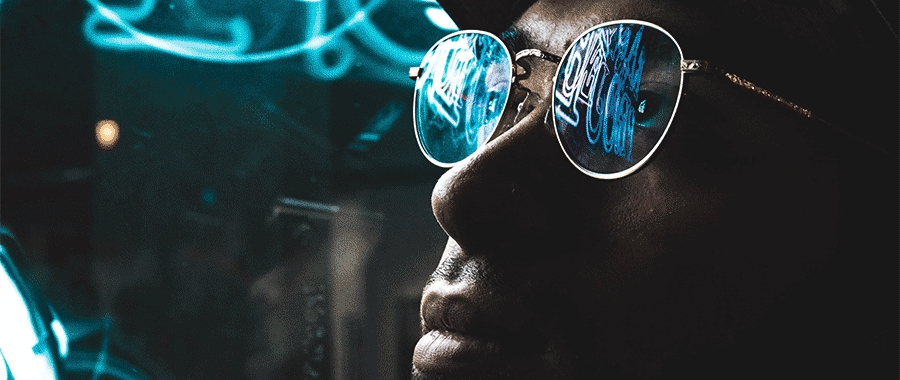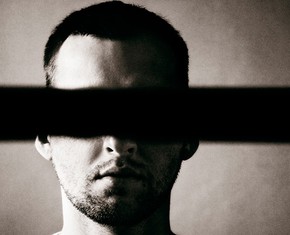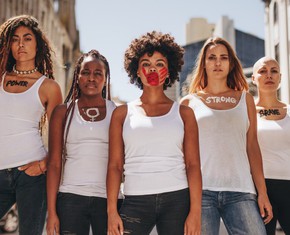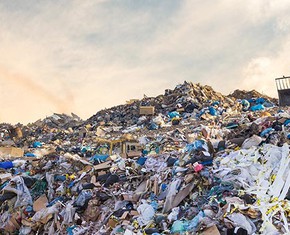The views expressed in our content reflect individual perspectives and do not represent the authoritative views of the Baha'i Faith.
One of my favorite stories from the Bible occurs in the book of Matthew, chapter 26, verse 34—which recounts the moment Peter, first among the disciples, assures Jesus that he will never deny him.
In response, Christ says, “Truly I tell you, this very night, before the rooster crows, you will disown me three times.”
Sure enough, when the soldiers seize Jesus and the high priests question him, Peter denies three times that he ever knew him—and yet, Peter is considered the greatest of the Apostles; the symbolic rock upon which Christ’s church was built.
Something in this account moves me profoundly, probably because it reveals both man’s weakness and God’s mercy.
After Peter’s final denial, he hears the cock crow and it reminds him of the prophetic words of Christ. The guilt and shame he feels threaten to destroy him. His torment finally ends when, after a long life of service, tradition tells us he is persecuted and crucified by Roman officials under emperor Nero in the year 64 AD.
This time, Peter’s moral conviction holds, his redemption complete.
The Baha’i writings say, “It is easy to approach the Kingdom of Heaven, but hard to stand firm and staunch within it, for the tests are rigorous, and heavy to bear.” – Abdu’l-Baha, Selections from the Writings of Abdu’l-Baha, p. 274.
For Baha’is, no direct correlation automatically exists between what one says and what one does. An affirmation of belief does not automatically mean one’s behavior reflects the spirit of the teachings:
It makes no difference whether you have ever heard of Baha’u’llah or not, the man who lives the life according to the teachings of Baha’u’llah is already a Baha’i. On the other hand a man may call himself a Baha’i for fifty years and if he does not live the life he is not a Baha’i. – Abdu’l-Baha, Abdu’l-Baha in London, p. 106.
So, as a Baha’i, what I choose to call myself means much less than what I choose to actually do. In my professional life I identify as a sculptor, actor and writer, but if I don’t actively practice those disciplines my verbal declaration means nothing. In fact, any affirmation rings hollow until I fortify it with action. In the same way, I may identify as a Baha’i, but fundamental to that identity is the sustained effort to develop moral consistency between my proclamation of faith and my conduct.
This, of course, is not unique to the Baha’i Faith. All of the great religions warn believers of the dangers of hypocrisy, admonishing them to bridge the gap between word and deed—to not only say they love humanity, but to actually act on that love. This does not imply a rigid attempt at perfectionism or religious puritanism, though. An essential mission of true religious teaching forges the spiritual and material education of man through the cultivation of one’s relationship to God and the gradual acquisition of heavenly virtues—a journey that requires a lifetime of patience, commitment and kindness.
We are all confronted with countless opportunities to prove the integrity of our moral convictions. These “tests,” as the Baha’i writings call them, are a “healing medicine to such as have drawn nigh unto God,” for they help us root out our weaknesses and reveal a more accurate measure of who we are.
My tests ask me: Do I really believe in the equality of women and men, or does my public or private behavior reflect sexist or misogynistic views? Am I a sincere proponent for the independent investigation of the truth, or do I subconsciously wish that everyone believed exactly as I do? Do my associations and friendships demonstrate a commitment to the elimination of the extremes of wealth and poverty, or am I really a believer in entrenched divisions, cloistered in my gated community away from the daily struggles of the poor and the dispossessed? Have I fully accepted the reality of the oneness of humankind, or does my advocacy end when my son or daughter wishes to marry someone outside of my culture of origin or income bracket?
These sobering questions haunt us, because they force us to confront our deepest fears and to see ourselves clearly. They expose the fault lines in our character and the fissures between what we say and what we do. They require courage and true humility at the heart of spiritual maturity. The Baha’i writings say:
Beware … lest ye walk in the ways of them whose words differ from their deeds. Strive that ye may be enabled to manifest to the peoples of the earth the signs of God, and to mirror forth His commandments. Let your acts be a guide unto all mankind, for the professions of most men, be they high or low, differ from their conduct. It is through your deeds that ye can distinguish yourselves from others. Through them the brightness of your light can be shed upon the whole earth. – Baha’u’llah, Gleanings from the Writings of Baha’u’llah, p. 305.
In the context of the Baha’i Faith, words can never provide a sufficient measure to gauge one’s spiritual state—but the divine word, coupled with the deeds it inspires, gives life. A profound example of this words and deeds dynamic concerns what the Baha’i Faith refers to as “America’s most challenging issue”—race.
As an African American male grappling with the social problematics of color, I am naturally drawn to Baha’u’llah’s mandate to eliminate all forms of prejudice. My experiences with the virulent effects of racism have seeded within me a focused determination to work towards the eradication of this infectious sickness of the soul. The towering writings of the Baha’i Faith, suffused with the majestic power of divine authority, speak eloquently of the interconnectedness of humanity:
… man must recognize the oneness of humanity, for all in origin belong to the same household and all are servants of the same God. Therefore mankind must continue in the state of fellowship and love, emulating the institutions of God and turning away from satanic promptings, for the divine bestowals bring forth unity and agreement whereas satanic leadings induce hatred and war. – Abdu’l-Baha, The Promulgation of Universal Peace, p. 124.
I love this quote’s dual nature—it describes the reality of humanity’s spiritual integration, and then instructs us to manifest that inner reality through our worldly actions.
Easier said than done, of course. None of us is perfect. Sometimes our courage falters. I may fail to speak up when confronted by casual expressions of bias—my silence a tacit validation of this despicable behavior. I may make public pronouncements of unity, yet refuse an invitation to visit the home of a friend who lives in a predominantly black or brown community, revealing my unresolved fears and indirectly feeding the pain of social marginalization so familiar to these populations. I may reject repeatedly any suggestion that race plays a role in my judgment on the grounds that my faith is evidence of my “colorblindness,” making my religion a proxy for my own refusal to do the hard work of self-reflection required to uproot, confront and try to eradicate my conscious and subconscious prejudices.
The great struggle for a Baha’i seeking to draw closer to God is to thoughtfully, intentionally, and gradually redirect one’s life to be more fully aligned with the transcendent teachings of Baha’u’llah. This implies creating an ever-decreasing chasm between what we profess and what we do. Mercifully, God sends us tests so that we may have a more accurate assessment of which spiritual muscles we should strengthen to facilitate our growth. If we can muster the fortitude to look at ourselves courageously with the word of the living God as our metric, we may ultimately pave the road towards our own redemption, just as Peter ultimately did.
















Comments
Sign in or create an account
Continue with Googleor